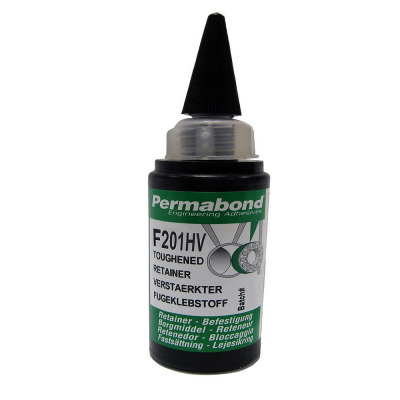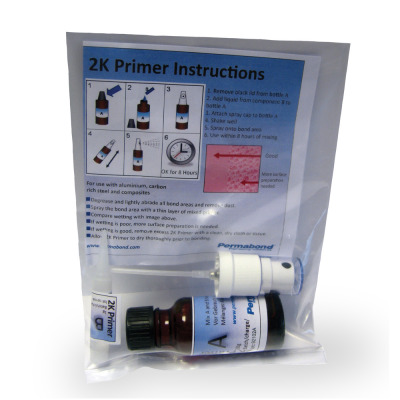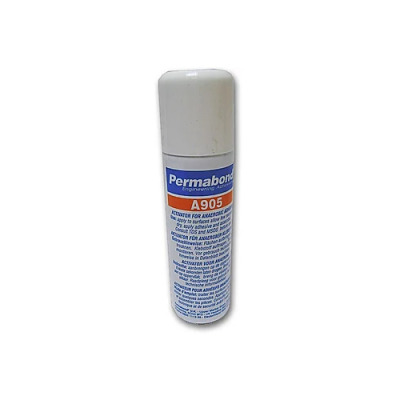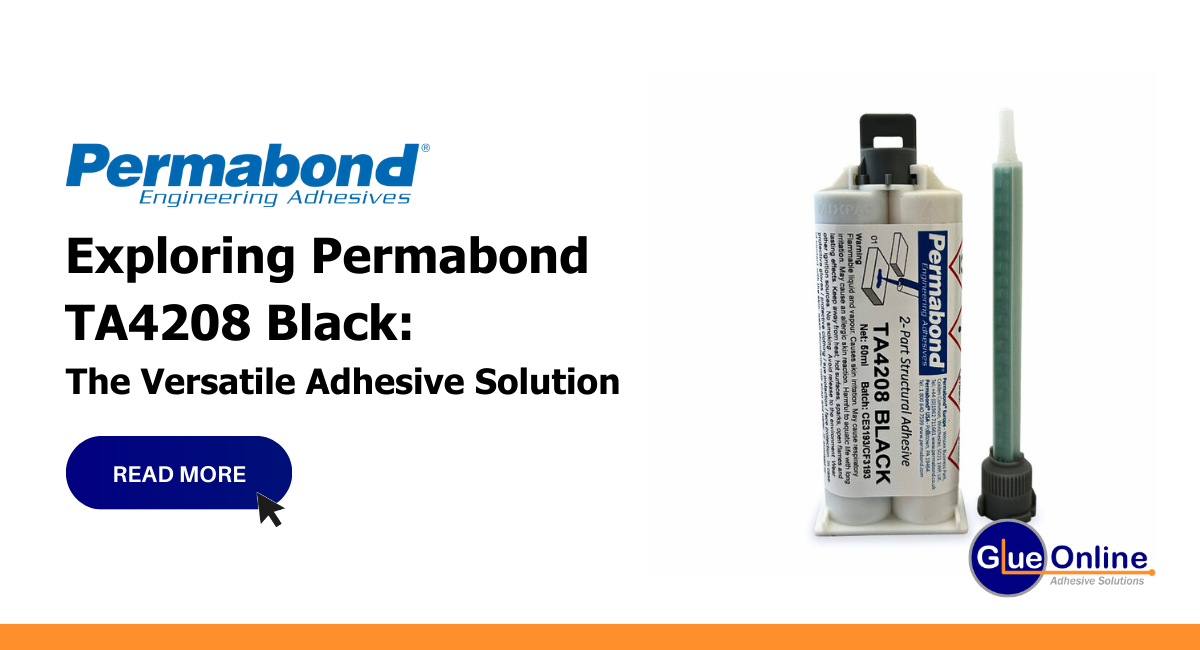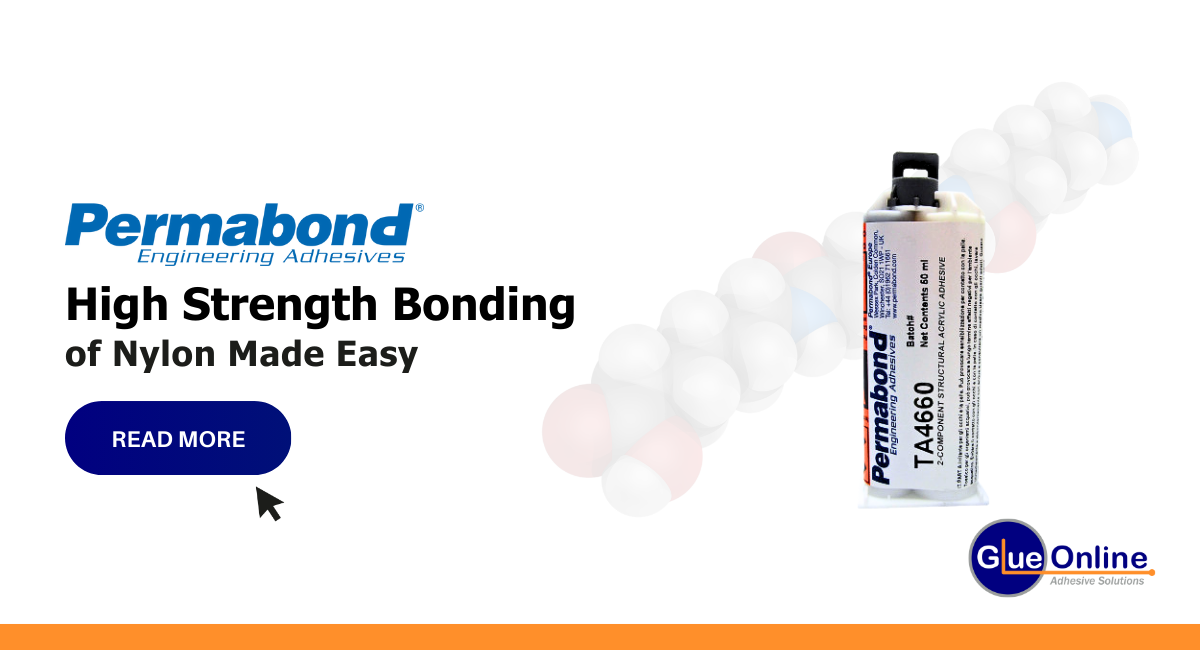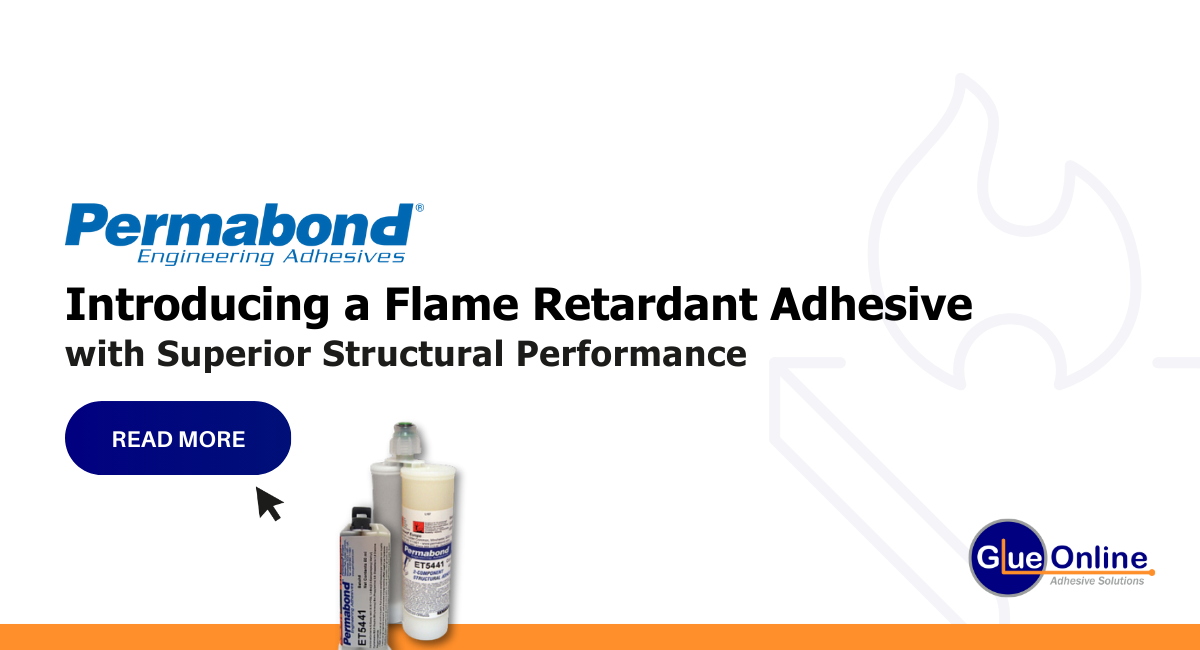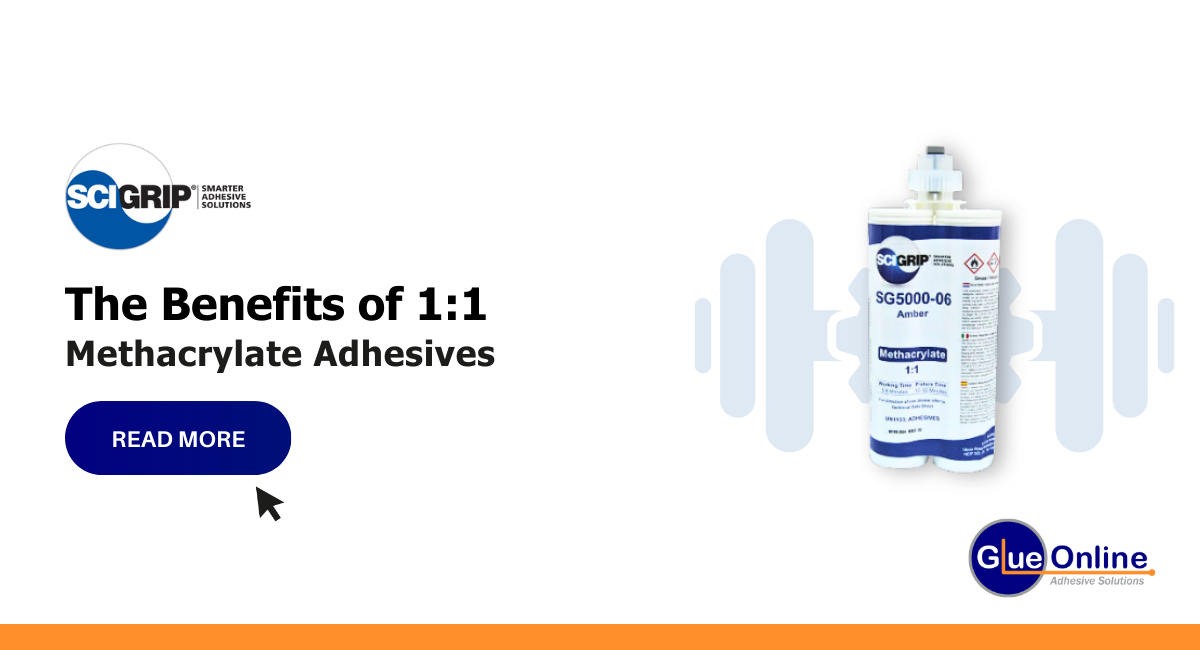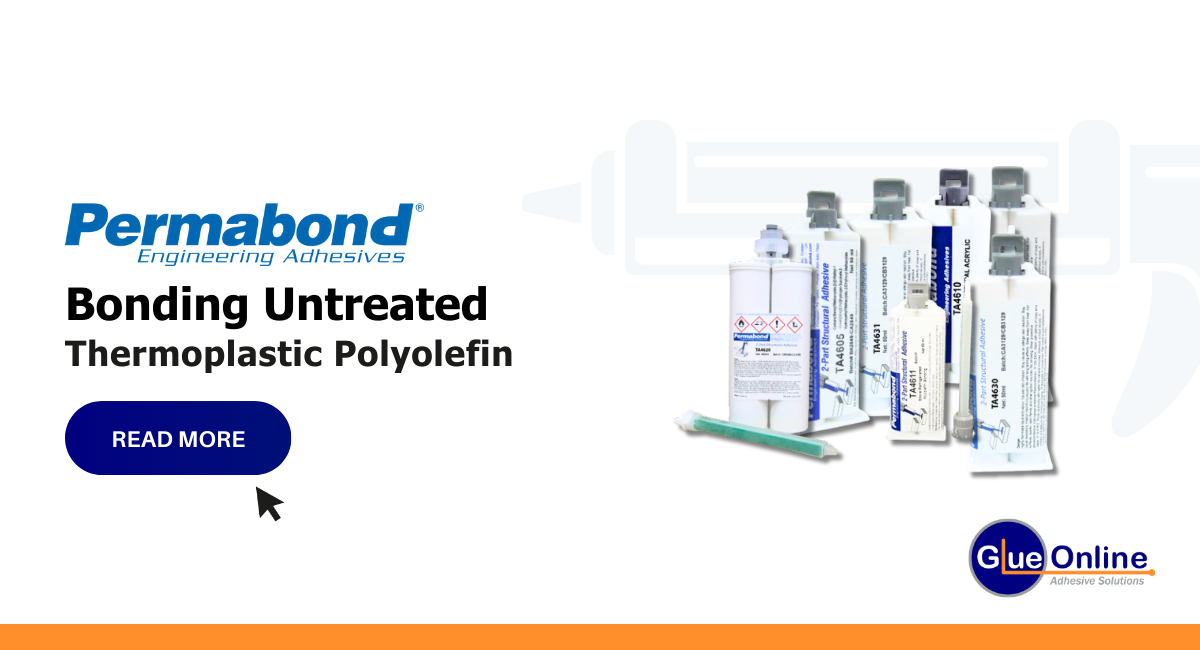Ground Breaking Hydrogen Pipe Sealant Gains KIWA Inorm KE214 & WRAS Approval
- GlueOnline
- Permabond at GlueOnline
- 9 May 2023
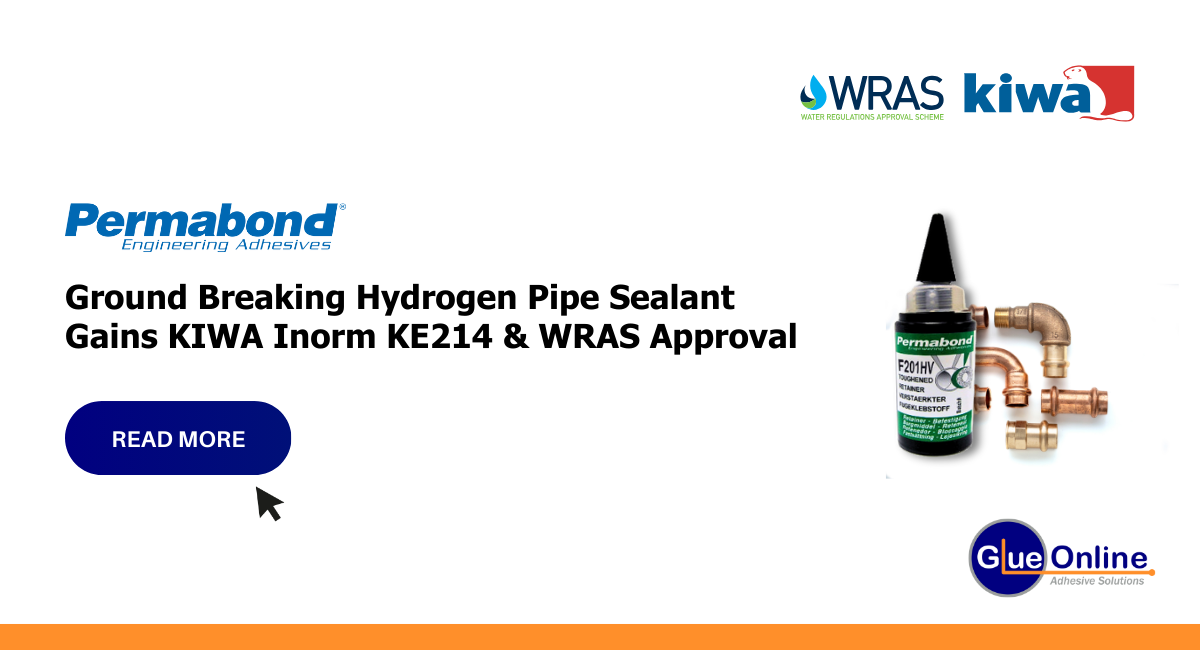
Ground Breaking Hydrogen Pipe Sealant Gains KIWA Inorm KE214 & WRAS Approval
Hydrogen gas is an extremely explosive and high-energy gas used in a wide variety of industrial applications, including fuel cells, rocket propellants, and welding. Due to its explosive nature, it is crucial all hydrogen gas pipework connections are sealed with approved materials to prevent dangerous leaks and potential explosions. An exciting development in the world of sealants see’s a innovative Permabond high strength hydrogen resistant anaerobic sealant gain KIWA Inorm KE214 approval! A previously WRAS approved product which boasts a unique rubber toughening system and is suitable for threaded and concentric joints; no other competitors have anything similar.
Hydrogen produces zero carbon emissions when burned and so is currently being explored as a potential alternative to natural gas in domestic gas systems. However, several challenges associated with the use of hydrogen in domestic gas systems need to be addressed. One of the primary challenges is the compatibility of existing gas infrastructure with hydrogen. The properties of hydrogen, such as its high reactivity and low density, mean that it can cause material embrittlement and leaks in some types of materials commonly used in gas distribution networks. Therefore, retrofitting existing infrastructure or designing new infrastructure that is compatible with hydrogen is necessary.
Why is it so important to use approved materials to seal hydrogen gas pipework connections?
Differential expansion in a pipe joint refers to the difference in thermal expansion between two adjoining pipe sections, which can cause stress and strain on the joint. When a pipe is subjected to changes in temperature, it expands or contracts in length and diameter. However, if one section of the pipe is exposed to a different temperature than the other section, the two sections will expand or contract at different rates, causing differential expansion.
If the pipe joint is not designed to accommodate differential expansion, it can lead to stress and strain on the joint, which can eventually cause it to fail. This can result in leaks, loss of containment, or even catastrophic failure. Permabond F201HV helps overcome this problem, this special product contains a high-tech rubber core-shell matrix, which absorbs vibration and
impact stress without the adhesive cracking; it’s ideal for mismatched metal joints where differential expansion and contraction could be an issue or where there could be thermal shock.
Overcoming Issues Associated with Hydrogen Pipework Thermal Shock
Thermal shock in a pipe joint occurs when a sudden change in temperature causes the joint to rapidly expand or contract, leading to cracking, leaking, or even catastrophic failure. This type of failure is commonly seen in high-temperature applications where the temperature changes rapidly, such as in power plants or industrial processes. Thermal shock can be caused by a variety of factors, including sudden changes in fluid temperature, flow rate, or pressure, as well as equipment failure or human error. When a pipe joint is exposed to sudden temperature changes, it can cause stress and strain on the joint, which can eventually lead to failure. The severity of thermal shock depends on several factors, including the temperature change, the duration of exposure, and the material properties of the joint. When applied correctly Permabond F201HV anaerobic sealant can help overcome the issues associated with pipework thermal shock.
Permabond F201HV Suitability in Hydrogen Gas Systems
F201HV anaerobic sealant is ideal for use in the plumbing, valve and gas distribution industry. It is approved for contact with gas and hot water, as well as recently receiving certification for use in hydrogen gas systems. The KIWA approval allows appliance manufacturers to use this anaerobic sealant safely, in the knowledge that it is suitable for use with hydrogen pipework and is fully resistant to the tiny molecular structure of H2, which is an extremely “searching” gas. KIWA approval is recognised globally as a mark of quality and safety, and products or services that have been KIWA approved are often preferred by customers and end-users who value reliability and quality. The KIWA mark is used in a wide range of industries, including construction, infrastructure, energy, and water management.
Shop Online

